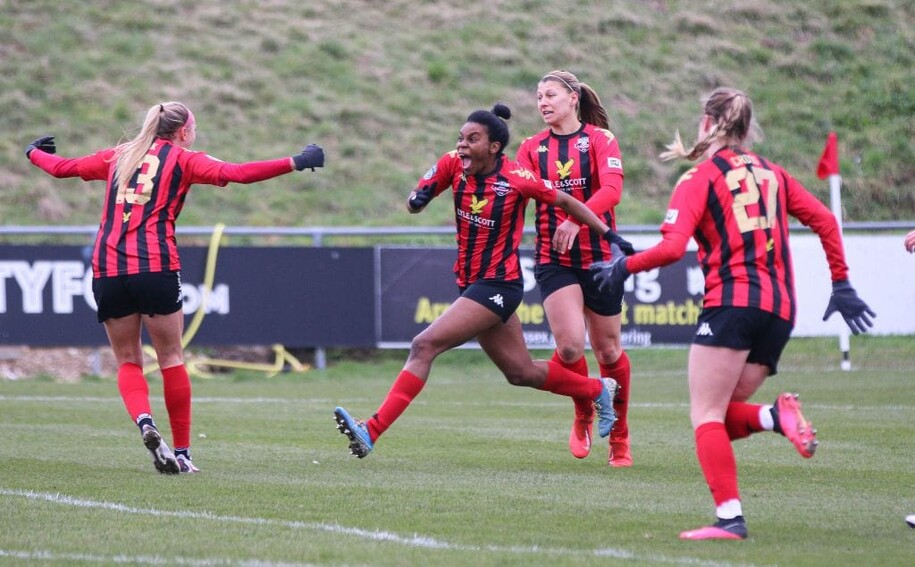News
Video: Lewes FC's special film on The FA's decision to ban women playing football
8 March 2021

Photo copyright James Boyes _ @gingeraction.jpg
Lewes FC, the only semi-professional or professional club in the world to pay it’s men’s and women’s teams equally, has released a film reflecting on The FA’s decision to ban women’s football 100 years ago.
Commissioned to coincide with International Women’s Day the film explores the long-term impact the 50-year ban had on the women’s game in England.
Fronted by former England International and WSL player and Lewes FC Director, Claire Rafferty, it charts the rise of women’s football in the early 20th century, when it grew almost as quickly as the men's game, reaching new heights in the period immediately after the First World War.
As women took their places in munition factories to support the war effort, they formed teams for fun. But unexpectedly women’s football began attracting tens of thousands of fans to matches across the country even after the men’s Leagues had restarted. This popularity reached its zenith when a match between Dick Kerr’s Ladies and St Helens saw 53,000 fans attend Goodison Park on Boxing Day 1920, with a further 14,000 people locked out of the ground.
Then, in 1921, The FA took the decision to ban women's football, essentially outlawing the game in England, suddenly deeming it ‘quite unsuitable for females’. They ordered clubs to ‘refuse the use of their grounds for women’s matches’ and forbade its members from acting as referees or linesmen at women’s games.
Although The FA claimed that the reason for the ban was to ‘protect’ women, it was widely purported that the growing popularity was seen as a threat to the men's game. The ban, which would last 50 years in total, changed the course of women's football in England forever. Finally, under pressure from UEFA, the ban was lifted in 1971, though even then, no official FA Women’s Football Committee was created until 1993.
Commenting on her role in the film, Claire Rafferty said: “It’s been a thought-provoking experience to dig deeper into the history of women’s football in England. I think a huge majority of football fans have no idea that this ban was ever in place, why it was introduced or that it lasted so long.
When FA Banned Women's Football - Subs from ScreenDog Productions on Vimeo.
"It’s almost impossible to calculate the true cost of the damage it did to the development of the women’s game but, there in no doubt, the gap in resources, revenues and opportunities would be far more equal if it had never been in place.”
Lewes FC is the only semi-professional or professional club in the world that provides the same investment, resource and infrastructure into its men’s and women’s teams. Its players are paid equally, play on the same pitch and train at the same facilities - the club have subsequently become known as Equality FC.
Scottish clothing brand, Lyle & Scott, invested a six figure sum into Lewes FC in December 2020, the largest ever obtained by any English women’s team that is not affiliated to a men’s Premier League side.
The contribution is supporting the club with resource, infrastructure and player acquisition. Lyle & Scott and Lewes FC will be creating a thread of films that explore themes of equality, diversity and community.
Share this article
